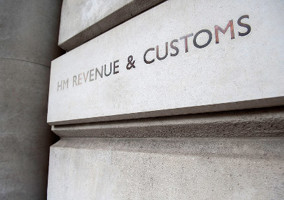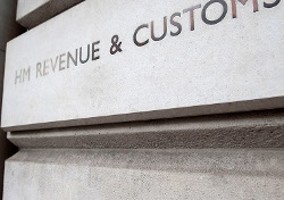Charities are missing out on £600m because people are not enabling them to claim Gift Aid on donations, according to government research out today.
The government will today launch a campaign encouraging the public to tick the Gift Aid box, and the Charity Finance Group has announced a new awareness day, to take place later this year.
According to research published today, Gift Aid was not claimed on one third of donations that were eligible for it, costing the sector £600m. It also found that £179m is being claimed erroneously by people who don’t understand the requirements.
It said that the most common reason was that there was no opportunity for the donor to claim Gift Aid.
“The value of unclaimed Gift Aid is mostly driven by a lack of opportunity, and to a lesser degree, by misunderstanding of Gift Aid and not recognising their eligibility to add it to donations,” the report said.
Donations worth £8.9bn to charity
HMRC commissioned research on Gift Aid from consultancy Quadrangle, and has published the report today, which estimates that donations are worth £8.9bn.
To do the research, 1,377 people were surveyed in late 2016 and early 2017. Research found that 95 per cent of people had donated to charity in the 12 months prior to being questioned.
It found 78 per cent of the population had given money through collection tins or buckets, raising £620m for charity. But 40 per cent of people gave via direct debit, raising £3.61bn.
The research found that there was more chance of people including Gift Aid when then made a donation online, with 73 per cent doing so, than by other methods. 59 per cent of direct debit donations, 50 per cent of charity envelope/cheque donations and 39 per cent of donations at a place of worship included Gift Aid.
If also found that awareness of Gift Aid was relatively low, with nearly a quarter of the public unsure about whether they were eligible and 18 per cent getting their status wrong.
Gift Aid gap
The report describes donations where Gift Aid was claimed erroneously as the Gift Aid tax gap and says this is worth £179m.
It said that direct debit donations contribute 45 per cent of this, but this is mainly because it is a high value channel and described online channels as contributing a “significant” amount.
“The Gift Aid tax gap is mostly caused by a lack of understanding of Gift Aid and what it means to be a taxpayer, leading to ineligible donors incorrectly believing that they are taxpayers and therefore eligible to add Gift Aid. There is little evidence to suggest that there is a tendency among ineligible donors to wilfully incorrectly add Gift Aid to their donations,” the report said.
CFG ‘Gift Aid Awareness Day’
The Charity Finance Group has announced that the first 'Gift Aid Awareness Day' will take place on 4 October 2018. The umbrella body will also commission research about how best to explain Gift Aid to the public and produce material charities can use to help with event.
CFG said the aim is to encourage charities to educate staff and volunteers on Gift Aid so that they can educate their family and friends.
Speaking at the launch today, Caron Bradshaw, chief executive of CFG said: “Gift Aid is vital to the charity sector and supports the work of tens of thousands of organisations. Without it, our sector would reach fewer people and deliver less impact.
“CFG wants to give practical support to charities so that we can boost the amount of Gift Aid claimed. At a time when charities are struggling to meet demand, every penny counts.”
Treasury writing to 50,000 charities
According to the research, nearly 80 per cent of people donate by giving money to collection tins or buckets, the research found. This is not normally eligible for Gift Aid, but charities can use another mechanism, the Gift Aid Small Donations Scheme.
GASDS was introduced in 2013 as a way for charities to claim on small cash donations, but uptake by the sector has been lower than expected.
The Treasury has now written to 50,000 charities urging them to use the scheme.
Robert Jenrick, exchequer secretary to the Treasury, said: “The UK has thousands of brilliant charities, all working hard to make people’s lives better. Through Gift Aid, we are already giving charities an extra £1.3bn of funding so they can continue their important work.
“We know how crucial this funding is. This is why we’ve just written to 50,000 charities to tell them about the Gift Aid Small Donations Scheme, which makes it even easier for charities to claim a 25 per cent top-up on their donations.”
Paul Winyard, senior policy officer at NCVO said: "Given current constraints on the public finances it’s really important that we make existing reliefs work as best as they can. £600 million will make a huge difference to communities up and down the country and we look forward to working with the Treasury to improve Gift Aid take up. This includes take-up of the Gift Aid Small Donations Scheme which has been slower than anticipated due to poor awareness and restrictive rules which particularly hamper claims by small charities. This complements the work of the Charity Tax Commission which will be looking at how tax reliefs can be made more efficient."
Daniel Fluskey, head of policy & external affairs at the Institute of Fundraising, said: "This research estimates that there could be an extra £600m given through Gift Aid - crucial extra money that could make a real difference for charities to do more for their causes and beneficiaries.
"The IoF has pushed for improvements to the system to make it easier for supporter to give Gift Aid and are glad to see that HMRC are committed to ensuring that the system works as best as it can to deliver maximum value for charities.
"We are pleased to be part of HMRC’s working group to review the recommendations of the report, and look forward to working together so that charities can benefit from the extra money that could be claimed."
|
Related articles












